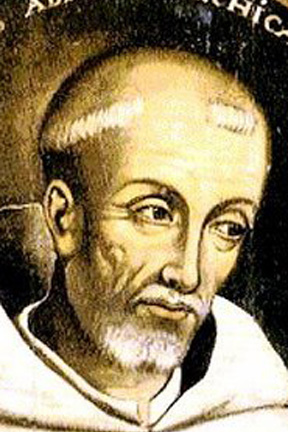

Buridan, Nicolaus of Autrecourt, and Hobbes. Ockham exerted a considerable influence on the subsequent development of logic and philosophy, especially on J. Like John Duns Scotus, he assigned will priority over reason. Williams best known contribution to Scholastic philosophy is his theory of universals, which is a modified form of Nominalism, more closely allied to. Religious dogmas were defined by him as suprarational prescriptions relating not to reason but to faith and will. He urged that philosophy and theology be divided into separate branches of study. Ockham insisted that concepts that cannot be reduced to intuitive knowledge and that cannot be verified experientially should be eliminated from science: “entities are not to be multiplied without necessity.” This principle, which came to be known as “Ockham’s razor,” played an important role in the struggle against medieval realism and the theory of “hidden qualities.” Believing that there can be no necessary link between individual substances, Ockham restricted the use of the concept of causation to empirical statements. He formulated the principle of the duality of conjunction and disjunction, and he asserted that primary cognition is intuitive and includes both external perception and introspection. Because the question is: how does man know anything Ockham, in his nominalism, said that the universal quality is only the voices breathflatus vocisso that. In his theory of consequence he virtually distinguished between material and formal implication. In particular, he originated the idea that the meaning of a term is determined entirely by its function in an expression. Ockham was one of the greatest logicians of the Middle Ages. “Real” sciences (those dealing with real objects) correspond to the terms of primary intention, and “rational” sciences (logic and grammar, for example) to the terms of secondary intention.

He asserted that only individual substances and their absolute qualities have real existence, and he proposed that, outside of thought, the universals are only names and terms signifying classes of names-terms of primary and secondary intention. Ockham was the chief representative of nominalism in the 14th century. He defended the principle of “evangelical poverty.” Many of his ideas anticipated the Reformation. According to legend, he told the emperor: “Defend me by the sword, and I will defend you by the pen.” In his political tracts, Ockham opposed the pope’s claims to secular power and the absolutism of ecclesiastical and secular authorities. From 1328, Ockham lived in Munich at the court of the pope’s adversary, Emperor Louis of Bavaria. He actively supported the head of the Franciscan Order, Michael of Cesena, in his dispute with the pope. In 1323 he was summoned to Avignon by Pope John XXII to respond to charges of heresy. Representative of late Scholasticism.Ī Franciscan monk, Ockham studied and taught at Oxford. English philosopher, logician, and religious and political writer. Born circa 1285 in Ockham, Surrey died 1349 in Munich.


 0 kommentar(er)
0 kommentar(er)
